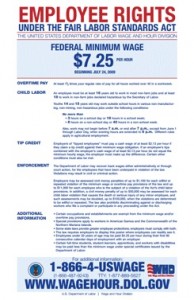
You sold property; the purchaser hasn’t paid; the promissory note is in default.
How can you recoup your losses? What are your options?
- Negotiate a Resolution
- File a Lawsuit
- Pursue Foreclosure

Negotiation
Before heading directly to foreclosure, you may want to consider negotiating with the purchaser in default. Your attorney can advise you on how best to proceed and can help review terms of the original agreement, send a letter on your behalf to the entity in default and work with you and the purchaser to work out a realistic payment solution.
Lawsuit
If time for negotiation is past, and other resolutions have failed, one choice is legal action. You may file a collection lawsuit under the promissory note.
Or you may foreclose on the property and sell it to recoup your losses.
Foreclosure
There are two kinds of foreclosure judicial and non-judicial*. Real Property Foreclosure law in Georgia allows both; however, today judicial foreclosure sales are relatively uncommon in Georgia. Judicial foreclosure requires a lawsuit and navigating the court system, which typically results in a long drawn out process. In a non-judicial foreclosure there is no court oversight and therefore resolution can be accomplished much faster. However, very specific requirements must be followed to avoid becoming vulnerable to a lawsuit for wrongful foreclosure.
Non-Judicial Foreclosure
Once the decision has been made to foreclose, your creditor representation lawyer will be instrumental in helping navigate the process. There are several things that you will need to gather and many documents that the attorney will need to review. As mentioned above, there are very specific procedures that must be followed exactly. These include careful review of the Promissory Note, the Security Instrument, along with any default provisions, the completion of a proper Title Search, and the detailed preparations necessary to advertise and sell the property once it is foreclosed upon.
One advantage of non-judicial foreclosure is the speed to which it can take place including the sale of property, once it is set in motion. You will want to be prepared to gather what your attorney needs to move through the process quickly. Each month of non-payment creates a wider financial gap, lowering the percentage of likely monetary recapture. Your first step is to call your creditor representation attorney and make an appointment.
*Real property foreclosure law in Georgia is generally governed by two (2) code sections. O.C.G.A. 44-14-180 is the authority with regard to Judicial Foreclosure Sales. O.C.G.A. 44-14-162, et seq., and Georgia case law directs how a non-judicial foreclosure should be conducted.
About Mark Walker
 Mark Walker, Partner at Hecht Walker, has been a litigator for 27 years. Mark specializes in representing banks, creditors, lenders, landlords, businesses and individuals in commercial foreclosure actions, in lender liability matters and in bankruptcy proceedings.
Mark Walker, Partner at Hecht Walker, has been a litigator for 27 years. Mark specializes in representing banks, creditors, lenders, landlords, businesses and individuals in commercial foreclosure actions, in lender liability matters and in bankruptcy proceedings.
Full bio at https://hechtwalker.com/about/attorneys/mark-c-walker/












 When leasing commercial space, many people don’t realize you pay for more than just the actual square footage you will occupy. In many commercial leases, and particularly in retail and industrial space leases, extra fees are often referred to as “Common Area Maintenance” (CAM) fees. These CAM fees serve to offset the landlord’s cost of the Common Area shared by the tenants.
When leasing commercial space, many people don’t realize you pay for more than just the actual square footage you will occupy. In many commercial leases, and particularly in retail and industrial space leases, extra fees are often referred to as “Common Area Maintenance” (CAM) fees. These CAM fees serve to offset the landlord’s cost of the Common Area shared by the tenants.



 Due diligence is the legal term for a wide variety of searches and inquiries undertaken before entering into a legal contract. In short, it means doing your homework in order to protect yourself. In
Due diligence is the legal term for a wide variety of searches and inquiries undertaken before entering into a legal contract. In short, it means doing your homework in order to protect yourself. In